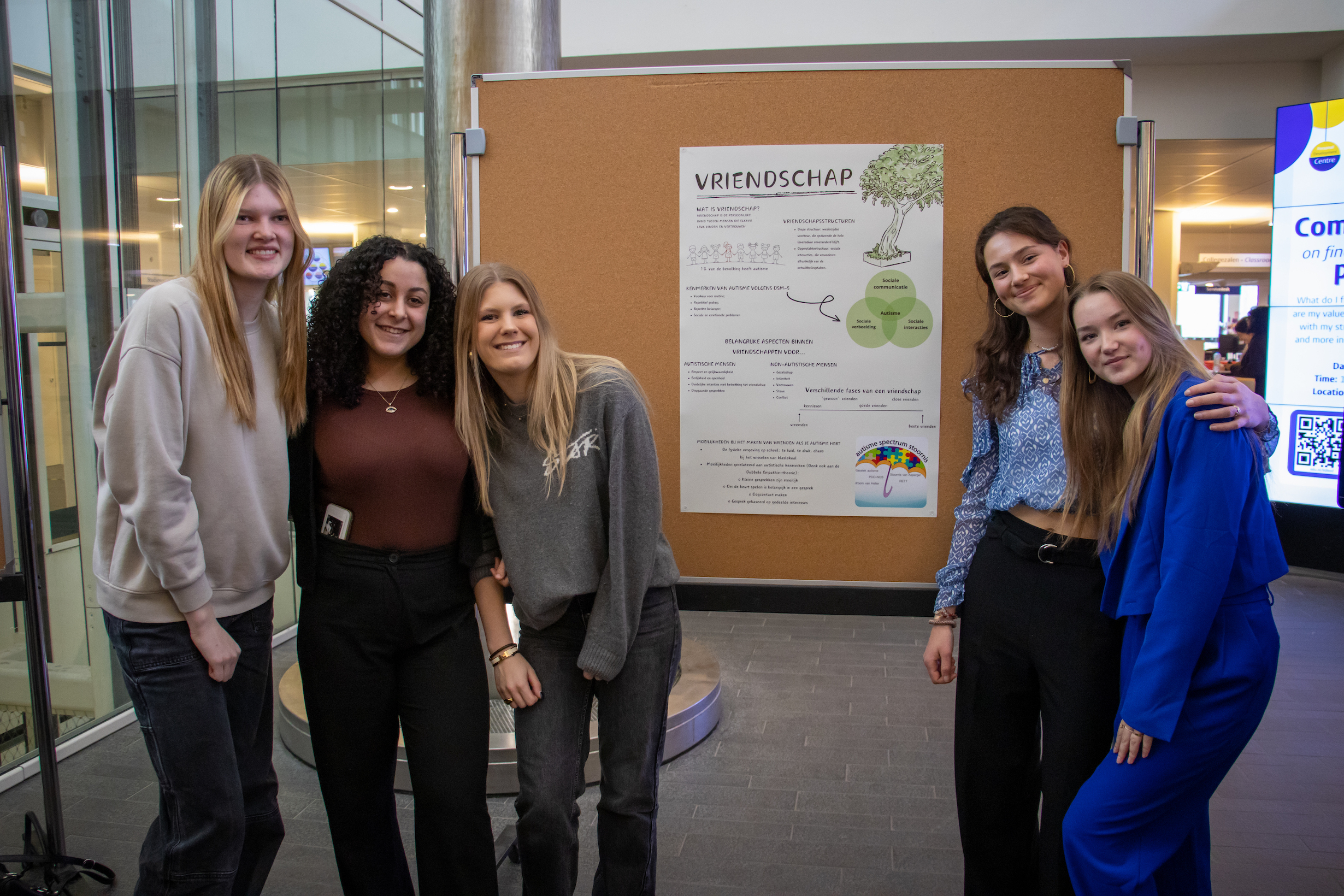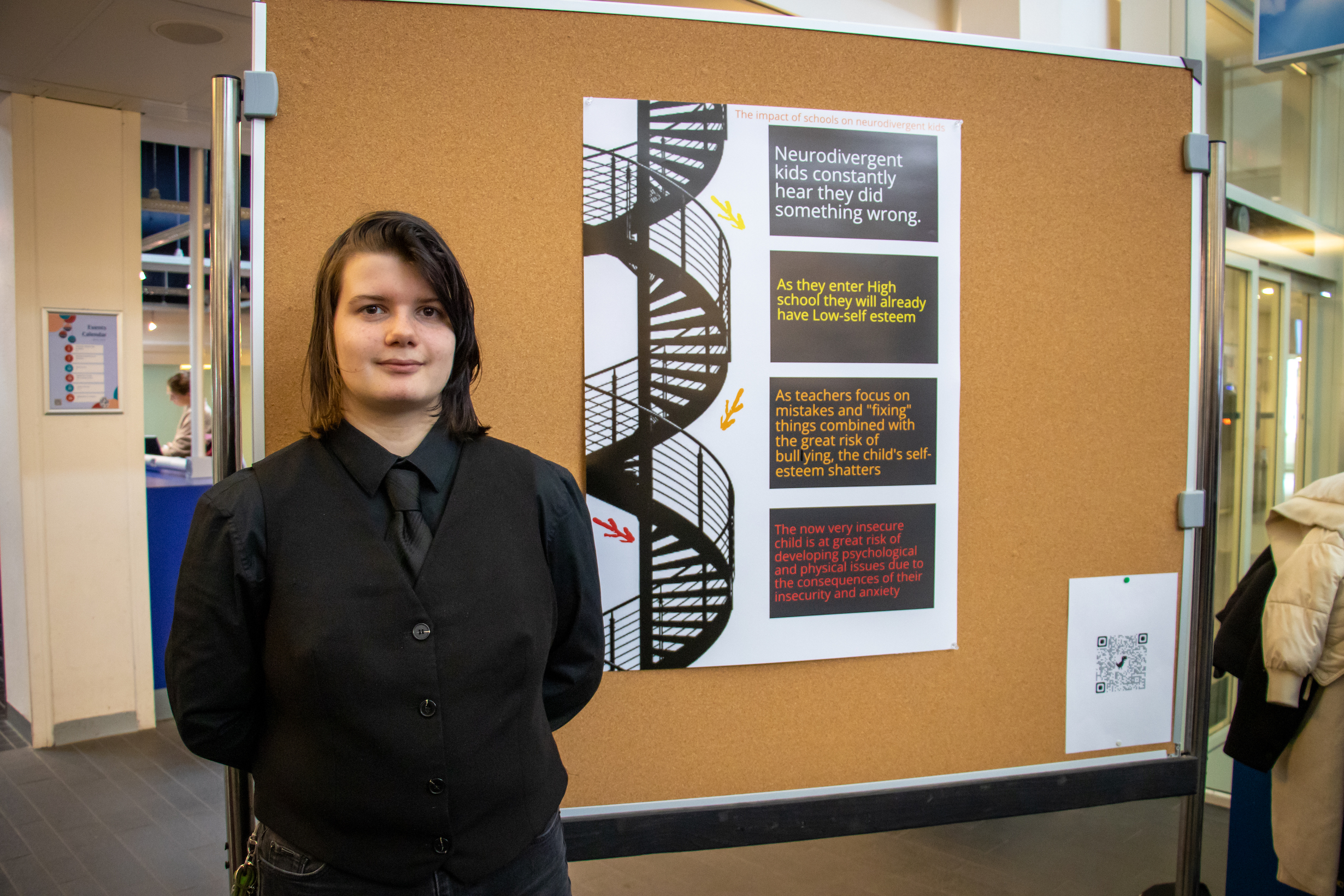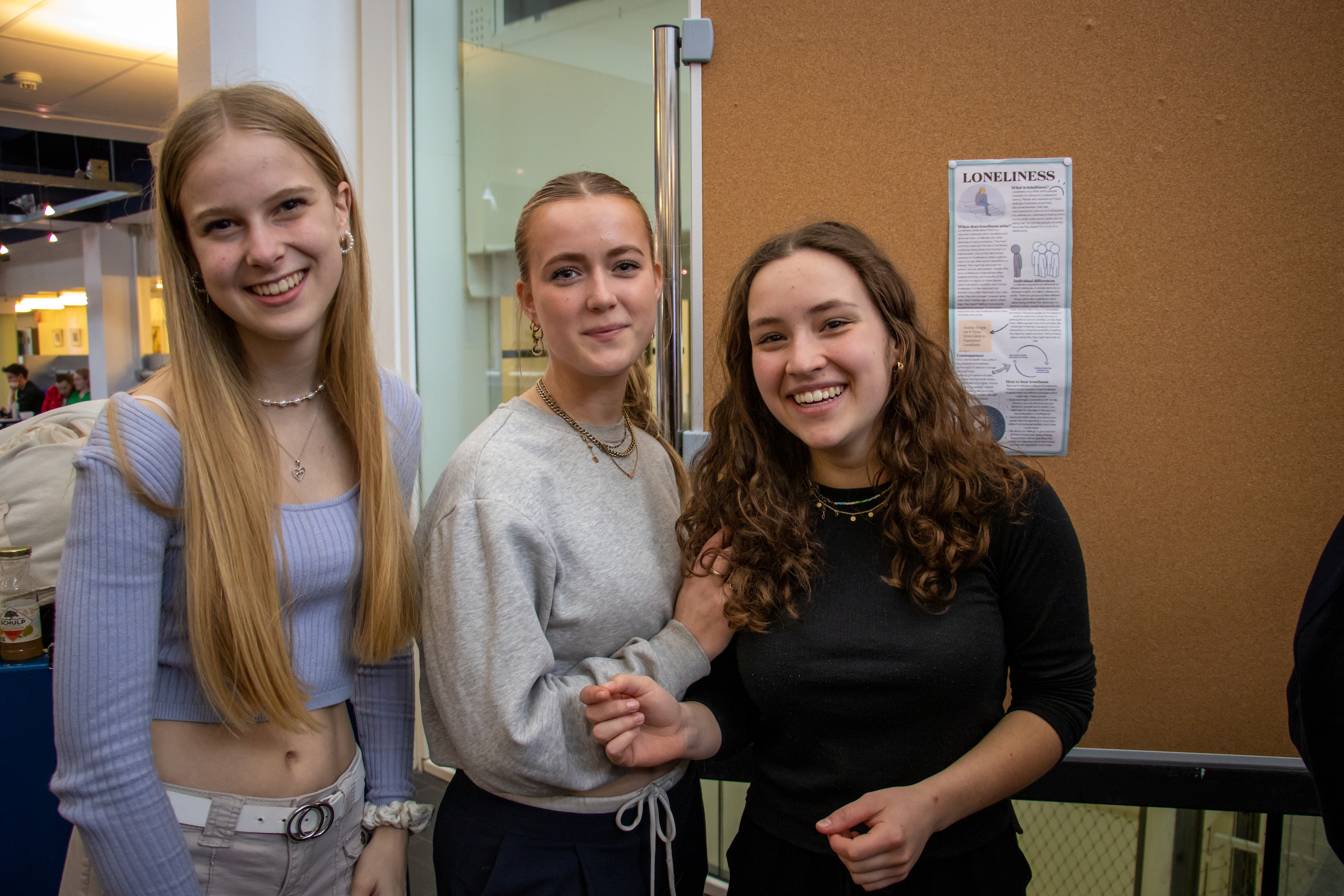
High school students get a taste of psychology: 'Later I'll become a neuroscientist'
How does loneliness work? Why can friendships be so complicated for autistic people? And what makes the school building such an unpleasant place for some pupils? High school students explored these topics during their pre-university classes. 'I now have a good idea of what studying psychology entails.'
No lockers and busy school yard, but following university lectures in the lecture benches: for a group of secondary school students in the pre-university classes, the past eight weeks looked different from normal. Esrih Bakker, education coordinator of the pre-university classes. 'The pupils taking part are in the fourth, fifth or sixth grade of the vwo. Many of them are bored at school; here they find the challenge they are looking for. This programme gives them a taste of what university will be like later on and helps them learn where their interests lie.'
The content of the pre-university classes focuses specifically on how emotions work and on inclusion of people with ADHD or autism, for example. The course is offered by researchers from the Focus on Emotions lab. Coordinator Carolien Rieffe: 'With these classes, we want to make these topics discussable among future students. All the topics the students work on are based on research from our lab.'

Friendship is not as simple as it seems
Evelien, Yara, Caithlyn, Caitlin and Emelie present their poster on friendship, especially friendship and autism. Because while friendship comes naturally to many, for people with autism it is often a constant source of uncertainty and tension. This is because, the pupils explain, autistic people need social contact in a different way. 'Hours of small talk about what you did during your weekend can be less interesting and even tiring for people with autism. They prefer to talk about shared interests, for example,' they explain. The school environment, with its crowded corridors and chaotic classrooms, can also make it harder for autistic youngsters to connect with peers. If schools take more account of this, they will make it easier for autistic children to form friendships. An insightful poster like this is a great start.
The girls look back on their pre-class weeks with satisfaction, although they would have liked to learn more about the different aspects of psychology. 'For example about mental disorders, like why you get depressed,' says Yara. 'Or NLP; neurolinguistic programming,' agrees Caitlin. 'I read a textbook about that now in my spare time.' She's also sure about one thing: 'Later I will become a neuroscientist.'

When you always have to adapt
Amyra has a mission: to make schools more inclusive for neurodivergent students. Neurodivergent, she explains, 'are people who have a so-called "label", who think and learn differently from what we see as the norm. For example people with autism, ADHD and dyslexia.' On her poster, she explains how these students can end up in a negative spiral in our current educational system. 'First of all, neurodivergent pupils are often told in primary school that they are doing something wrong or that they're not able to fulfil the expectations. Things that do go well, however, are often not noticed. This makes it harder for them to keep up and their self-confidence decreases.' Once they reach secondary school, teachers again often focus on what is going wrong, how to 'fix' the student. In addition, these students often fail to connect well with others and are often bullied or excluded. 'When someone then finishes school and enters society, their self-confidence is often crumbled,' Amyra says.
Amyra recognises the findings from her research: she has autism and suffers from all the stimuli, crowds and noises at school. 'Sometimes I come in with my coat and earphones on. A teacher then makes a remark on this. But he doesn't understand what it's like to have to get to the classroom through a chaotic corridor with hundreds of students. I deliberately shut myself off from those stimuli because all the little details can become quite overwhelming.' Together with her mother, she tries to raise awareness about the issue among her teachers. Whether that succeeds? 'It is going slowly, but we are doing it step by step.'

Helpful introduction to loneliness
Iris, Marthe and Isabel designed a poster about loneliness: what it is and why it is more common in some people than others. For example, autistic people are four times more likely to experience loneliness than non-autistic people. 'We based our info on the existing literature and chose to translate it into a poster format because it is accessible. You can read it, but also look at the images for information,' they explain. How they look back on their eight college weeks in psychology? 'Very informative. Although it wasn't always just about psychology, for instance, we were also taught how to interview someone.' They highly recommend the pre-university classes: 'I think you get a good idea of what studying psychology entails.' And will they enroll themselves soon? All three are still in doubt about that. Iris, left, is still in the fourth year: 'Fortunately, I still have an extra year to think about it.'
